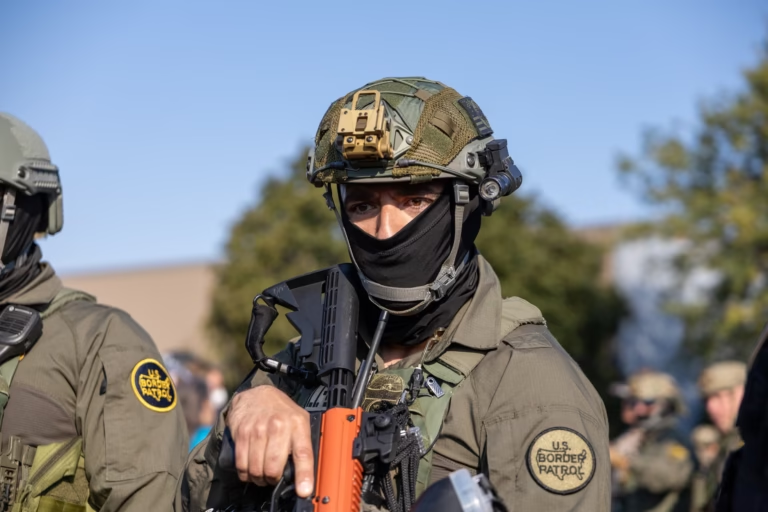President Donald Trump has authorized the deployment of 300 National Guard troops in Chicago to protect federal officers and assets, the White House confirmed. The move comes after a border patrol incident in which agents shot and injured a woman while defending themselves from a vehicle attack. White House spokesperson Abigail Jackson said the president acted in response to “ongoing violent riots and lawlessness” that local leaders had not controlled. She added, “President Trump will not turn a blind eye to the lawlessness plaguing American cities.”
Illinois Governor JB Pritzker criticized the deployment as unnecessary, calling it a “manufactured performance – not a serious effort to protect public safety.” He said the Pentagon had given notice early in the day, demanding the governor call up troops or face federal intervention. “It is absolutely outrageous and un-American to demand a governor send military troops within our own borders and against our will,” Pritzker said. He warned that the order would pull working Americans from their jobs and families for what he described as political theatrics rather than genuine safety concerns.
The deployment coincides with an aggressive immigration crackdown by the U.S. Immigration and Customs Enforcement (ICE) in Chicago. The operation has drawn strong opposition from local civic groups and Democratic officials. Local, state, and county law enforcement have been coordinating security for ICE’s Broadview facility on the outskirts of the city. On Friday, 13 people were arrested near the facility during protests against the federal enforcement surge.
The Department of Homeland Security confirmed that a woman was shot on Chicago’s southwest side after border patrol agents were rammed by vehicles and boxed in by multiple cars. Officials said a suspect attempted to run over the agents, prompting them to fire in self-defense. DHS spokesperson Tricia McLaughlin said the woman, a U.S. citizen armed with a semi-automatic weapon, had been named in a Customs and Border Protection intelligence bulletin last week for doxing agents. The woman was treated at Mount Sinai Hospital and released. No officers were seriously injured.
The shooting follows a similar federal incident last month when ICE agents killed a Mexican immigrant in a Chicago suburb after he allegedly struck an officer with his car while fleeing a traffic stop.
Chicago is one of several U.S. cities where Trump has deployed or threatened National Guard troops to assist police in immigration enforcement or in response to disputed claims of rising crime. Homeland Security Secretary Kristi Noem and border patrol sector chief Gregory Bovino visited the Broadview facility on Friday. Noem announced reinforcements on social media, saying, “I am deploying more special operations to control the scene. Reinforcements are on their way. If you see a law enforcement officer today, thank them.”
The Trump administration has maintained that crime in Chicago has surged in recent years, though reports indicate that federal claims are exaggerated. ICE operations have included helicopter surveillance, apartment raids, and arrests of local officials and political candidates who protest the enforcement measures. Critics argue that these actions represent a politicization of federal law enforcement and military power.
Trump has repeatedly deployed National Guard troops across the country, from Los Angeles to Washington, D.C., despite federal law limiting military involvement in domestic policing. The deployments have sparked widespread concern over the role of the military in civilian law enforcement.
Meanwhile, a federal judge blocked Trump from sending the National Guard to Portland, Oregon. U.S. District Judge Karin Immergut, a Trump appointee, agreed with Oregon’s claim that federal deployment could worsen tensions rather than reduce protests. The restraining order cited past instances where federal troop presence inflamed unrest, highlighting the legal limits on domestic military intervention.
The Chicago deployment underscores the ongoing tensions between federal authority and state control, as well as the political stakes surrounding immigration enforcement and public safety. Governor Pritzker and local officials continue to oppose the move, arguing that it prioritizes political messaging over the protection of residents and communities.







